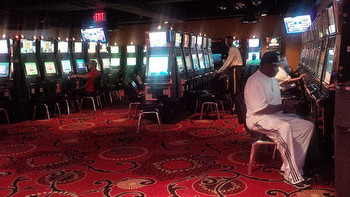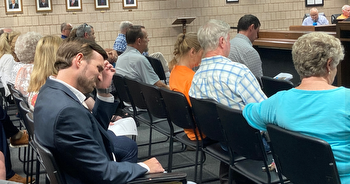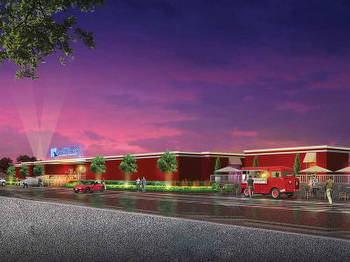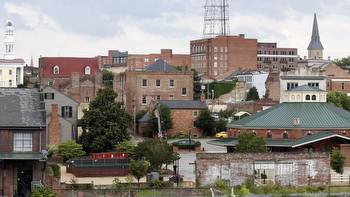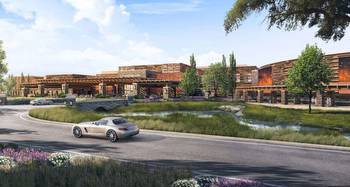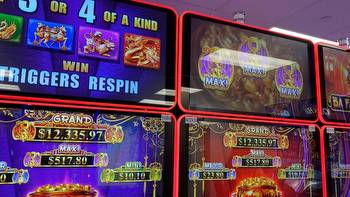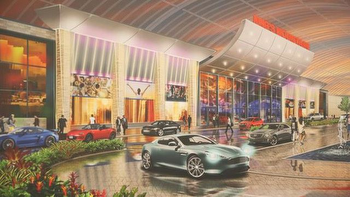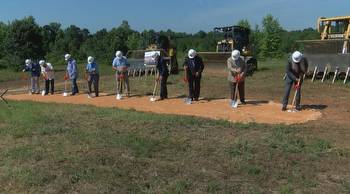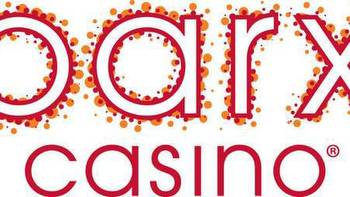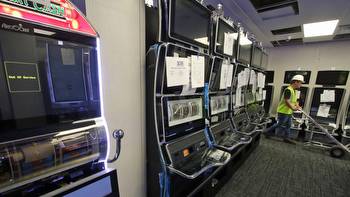Catawba casino opponents: Don't gamble with our lives for financial jackpot
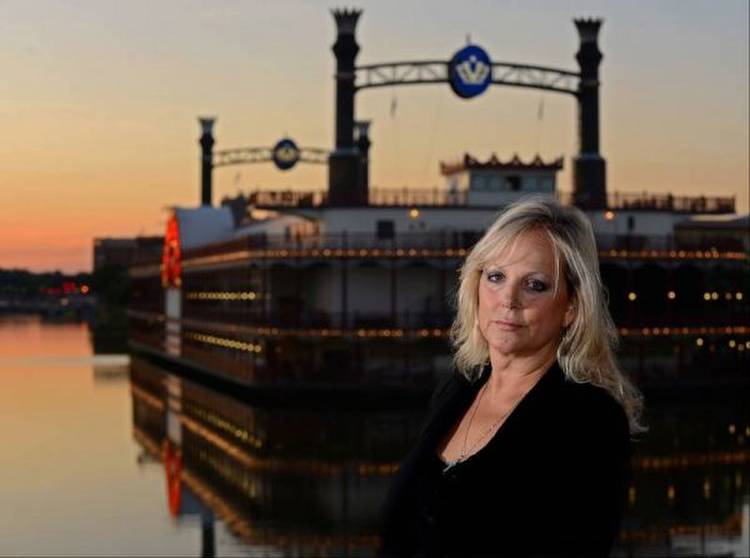
Just off I-85, on the way into Kings Mountain, there’s a truck stop on Dixon School Road. Driving through on a weekday afternoon, you might think it’s abandoned. No one fueling up at the pumps. No cars in the lot. On the towering sign, tall enough to be seen from the highway, the old “Citgo” logo has been blacked out with spray paint.
One of the few signs of life, when one gets close enough to peer inside, is a message hand-painted onto one of the windows.
“We Have Lottery.”
An old man in a “USMC Veteran” cap walks about two miles down the road most days, past the small church and a shed selling CB equipment, to buy a pack of Marlboros and a handful of tickets.
“I don’t need to give my name,” he said. “I don’t need no publicity.”
He may not need to walk down to the gas station each day much longer, either. The Catawba Two Kings Casino Resort broke ground just down the road back in July, not a half-mile from his house.
“I figure I can just walk over and play them slots,” he said. “If they sell cigarettes too, I got it made.”
That’s what worries Adam Forcade.
He’s on the national board of Stop Predatory Gambling, a nonprofit organization working to educate people on the negative impacts of gambling and advocate for those harmed by it. But he also owns a home in Gaston County, about seven miles from the new casino site. He’s one of the leaders of a grassroots local opposition to the new casino.
“There are people in our community, in our society, who are far more susceptible to false hopes and dreams,” Forcade said. “The gambling industry in general and the video poker industry specifically crafts their marketing to those people.”
It’s not difficult to see the appeal in the Cleveland County area, Forcade said.
These small mountain communities were long ago abandoned by manufacturing. Tourism has failed to take hold. Nineteen percent of county residents now live beneath the poverty line.
A new $273 million, 17-acre casino may be a gamble. But with the promise of jobs and new investment in the area, it’s one many are willing to take.
“They make everyone think they’re going to get new, high paying jobs and that they can be James Bond going to the casino with a beautiful woman on their arm.”
The reality, Forcade said, is that locals in an economically struggling area will end up losing money they can’t afford to an industry built on extracting as much money as possible out of a community.
Melynda Litchfield learned all that the hard way.
She was in her early 50’s, a mother of three working as an ICU nurse and supervisor when she began enjoying the occasional night out at riverboat casinos in Joilet, Illinois.
But what began as a harmless distraction slowly became a dangerous compulsion. Between 2008 and 2012 she estimates she lost about $100,000, as well as a lot of self respect and time she can never get back.
“It ruined my life — my finances, my credit, it hurt my family,” she said. “And people still don’t take it seriously. They just say, ‘Well, it’s your fault. Your an adult. Just don’t gamble.’ And it is my fault. I’m an adult and I did it. But if you go into a bar and you have eight drinks, they’ll cut you off. None of that happens in a casino. They figure out ways for you to keep gambling. That’s the industry.”
Litchfield sought help through Gamblers Anonymous. She took the extra step, available in Illinois, of having herself voluntarily excluded from casinos — put on a list of people who aren’t allowed on the properties. But since then gambling has rapidly expanded in the state. Now there are thousands of video gambling machines across the state — in restaurants, gas stations and laundromats, nearly everywhere she goes.
Through her work with Stop Predatory Gambling, she came to Cleveland County last year to talk with Forcade and tell her story to those working to prevent the new casino in their area.
What she saw was what she’s seen all over the country, she said — another economically depressed area pinning its hopes for recovery on gambling. And people in elected office happy to adopt the industry’s line on the benefits and dismiss decades of research on the harms.
“When you go to affluent suburbs, you know what you don’t see?” Litchfield said. “Ads for the lottery. Slot machines. Casinos. You see those in places where there are vulnerable people who want to be sold this dream that in reality is a nightmare.”
Litchfield points to the research of John Kindt, professor of business and legal policy at the University of Illinois Urbana Champaign. As Illinois has continued to embrace gambling, Kindt’s department has published studies on gambling for the last 25 years. That data show that as of 2015, all gambling in the the state of Illinois generated about $1.5 billion. But the “social costs” where the industry has taken hold are, he estimates, between $3 billion and $6 billion.
Those social costs include increased crime in communities that embrace gambling and an increase in bankruptcies of between 18 and 42 percent.
One of the most pernicious fictions is that gambling addiction isn’t like alcoholism or drug abuse, Litchfield said, but simply a self-discipline problem. In reality, it is recognized by the medical and psychiatric communities for what it is — a devastating problem that can and should be treated.
In this month’s official City of Kings Mountain newsletter, Mayor Scott Neisler made the sort of statement Litchfield said is at the heart of the problem.
“I believe it is each individual’s responsibility to conduct themselves properly in a Christian way and that moderation in life is the key,” Neisler wrote. “This is like anything else in life, such as alcohol, eating, etc. Gaming itself is not evil unless someone abuses it.”
The idea that elected officials would compare gambling addiction to overeating and dismissively advise practicing moderation is infuriating, Litchfield said. It makes obvious how motivated they are by money to belittle the social costs of gambling and the industry’s spread into communities that can ill afford it.
Policy Watch has previously reported on the Neisler family’s millions in land holdings near the casino site. Previous investigations have also explored what Neisler calls his “really good working relationship” with Wallace Cheves, the casino developer and GOP mega-donor with political connections to President Donald Trump, Senators Lindsey Graham (R-SC), Thom Tillis (R-NC) and Richard Burr (R-NC), all of whom have worked to remove obstacles to the casino.
Dr. Alton Beal, president of Ambassador Baptist College in Shelby, said he is not impressed with Neisler’s advice on people acting “properly in a Christian way.”
A great deal of the opposition to the casino has come from Cleveland County’s religious community, Beal said — and it has been largely ignored by the area’s elected officials.
“The casino thrives on the love of money to the point of addiction,” Beal said. “I don’t know how you can talk about living in a proper Christian way and be working to bring that into our communities in a much larger fashion than we have ever seen it before.”
Decades of research has shown what follows when casinos come to town, Beal said — domestic abuse, bankruptcy, family instability. Local churches and faith communities know they will be left to pick up the pieces, he said — so they have been on the front lines of the opposition in the last few years.
But after years of struggling against the development, Beal said many locals are now getting discouraged.
They’ve seen politicians like Tillis go from opposing the project in the N.C. House to supporting it in the U.S. Senate after receiving contributions from politically-connected developers. They’ve watched the federal Department of the Interior reverse policy decisions to help the casino after tens of thousands in contributions were made to the president and his party. They’ve witnessed the Speaker of the state House, their area’s own Tim Moore, recuse himself because of his work for the casino developer rather than represent the constituents who are raising their voices against this project.
Still, Beal said, this isn’t a done deal.
“They want you to think it is,” Beal said. “But if this was a clear done deal, they wouldn’t be introducing legislation to get this done now. They wouldn’t be trying to change the law, to change these settlements and agreements even as they are building this thing.”
“They want to go ahead and do this and ask forgiveness rather than ask permission,” Beal said. “That’s the wrong thing to do. And we don’t have to let them do it.”








